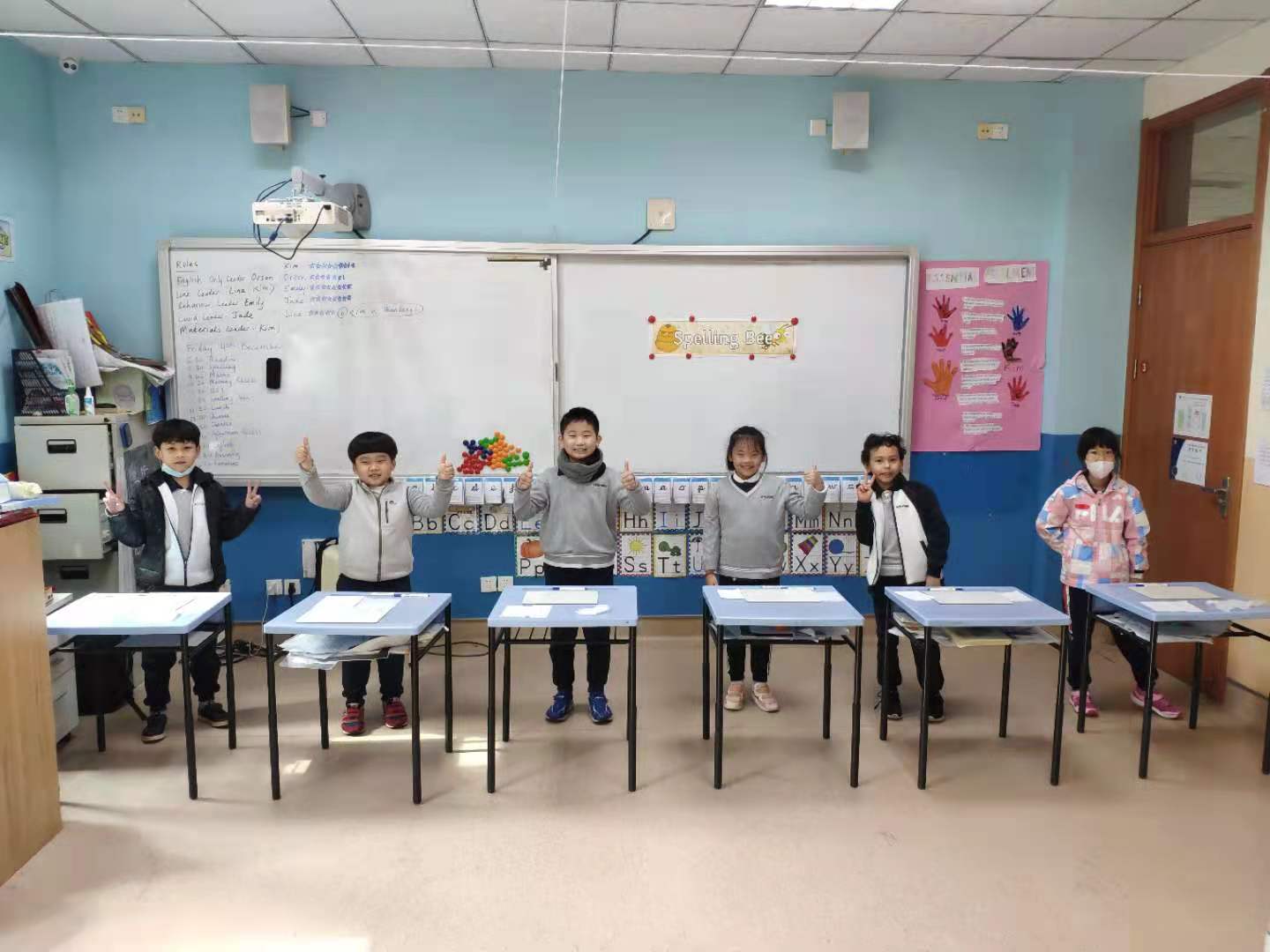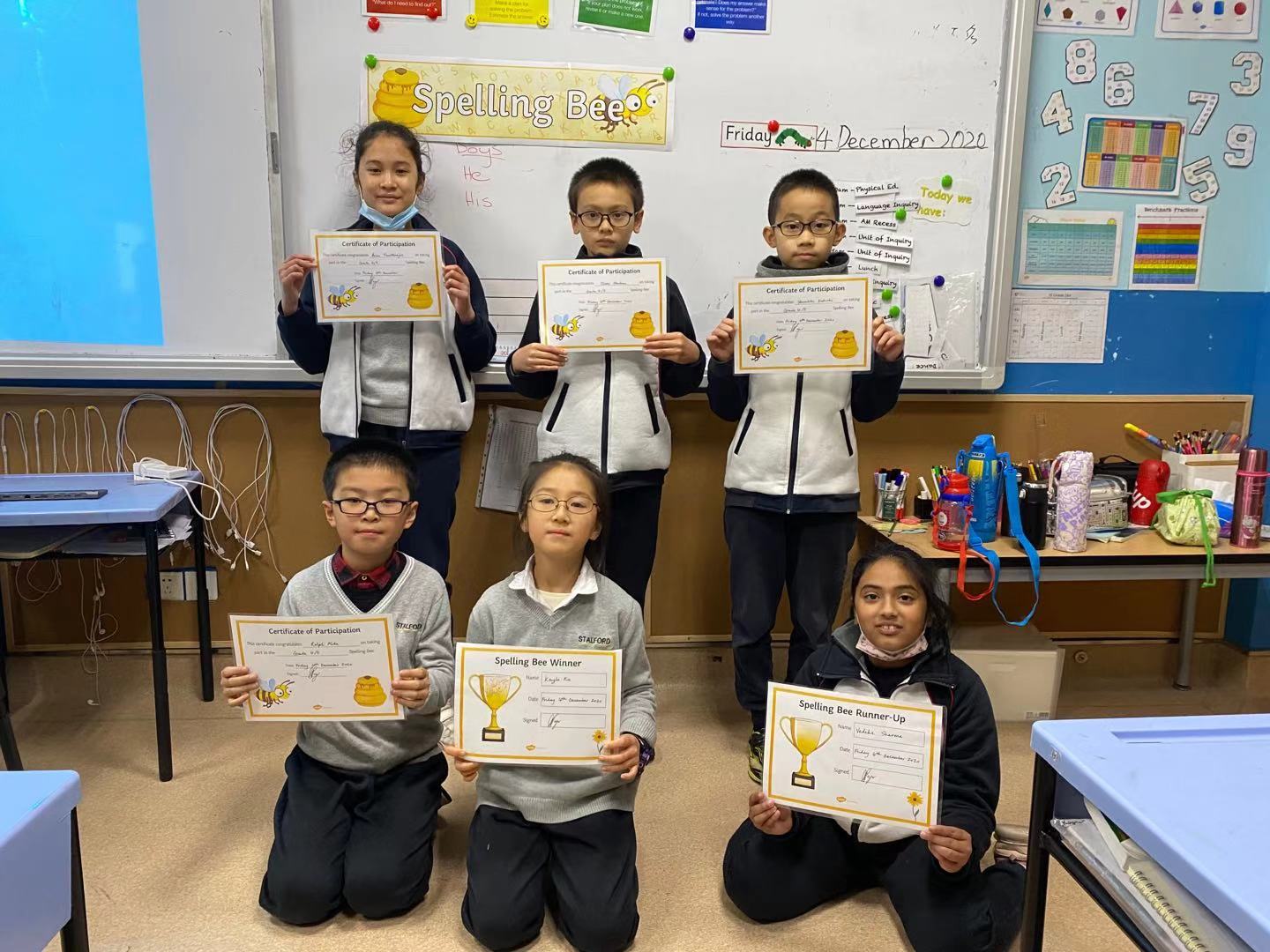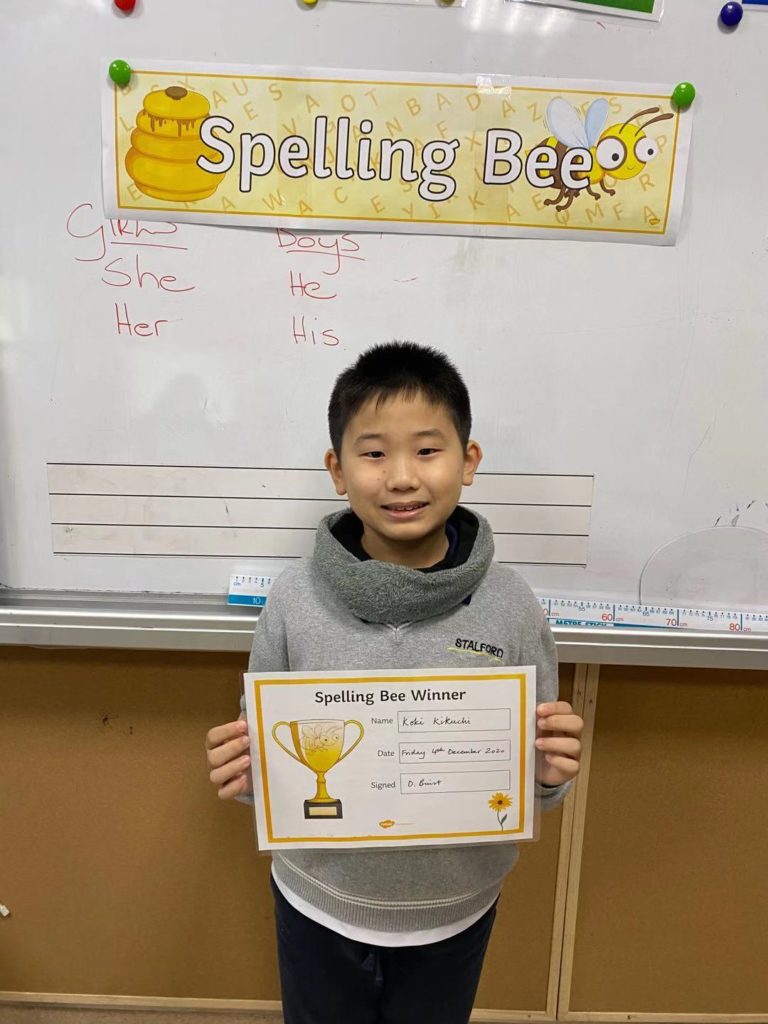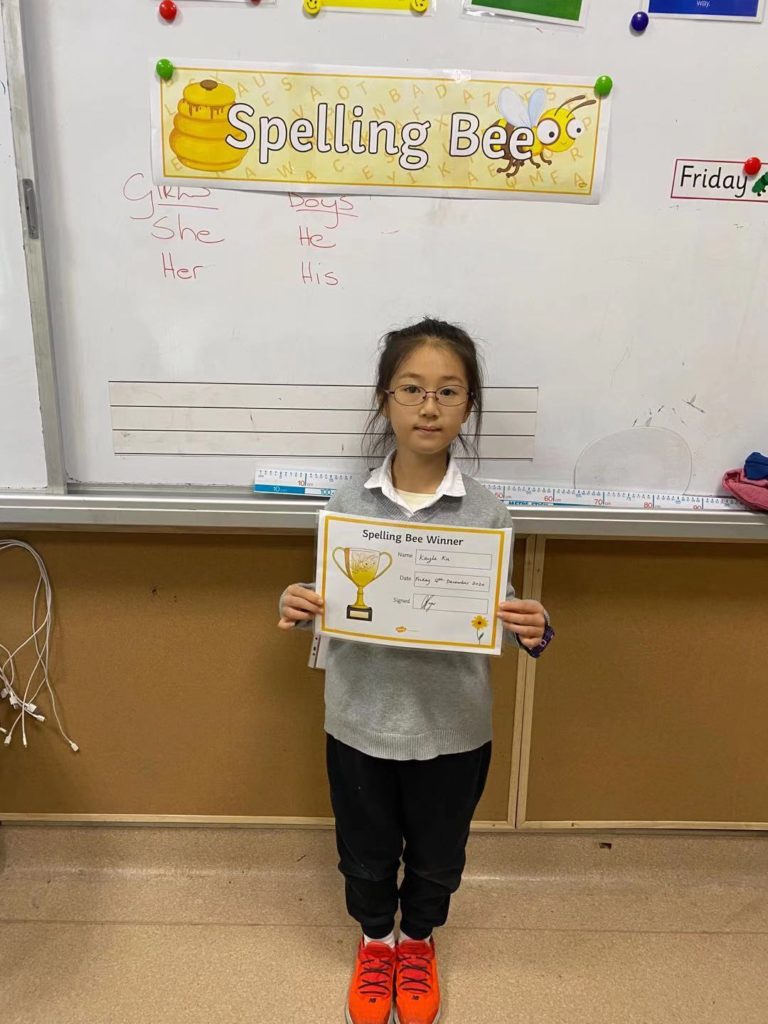The PYP Department are always Purposely Yearning for Power!
We hosted a Spelling Bee competition in which contestants were asked to spell a broad selection of words, with a varying degree of difficulty. Contestants had to memorize the spellings of words as written in dictionaries, written or online, and recite them accordingly. Students studied the correct spelling of words from prepared study lists and participated in “round” competition in which contestants were eliminated when they misspell a word.
Participants ranged from grade 2 through to grade 5. We categorized students into two groups. Grade 2 &3 competed against each other and Grade 4 and 5 against each other. In true PYP spirit, we had a risk-taker from grade three competing against grades 4&5.
The contestants

From left: Ken (Grade 3, Jade (Grade 2), Koki (grade 3), Emily (Grade 2), Orson (Grade 2) and Yukino (Grade 3)

Back: Grade 5; Alice, Oliver and Shunichi Front: Grade 3 & 4; Ralph, Kayla and Vedika
WE BELIEVE THAT!
The Bee helps students to
Spelling difficult words in a room filled with anxious parents under a bright spotlight mean students have to be able to think and perform under pressure in front of an audience.
Public speaking is a common phobia, but spelling bee competitions expose students to public speaking from a young age.
With practice, students can build their confidence in public speaking, and it can become a less anxiety-inducing experience for them, regardless if they win the competition or not.
The Winners

Koki (Grade 3)

Kayla (Grade 3)
So What about spell check?
In our modern world of technology with spell checkers, Why do I have to spell? It’s true that spell checkers work reasonably well for those of us who can spell reasonably well — but if you lack spelling skills, you can’t use a spell checker. Spell checkers do not catch all errors. Students who are very poor spellers do not produce the close approximations of target words necessary for the spell checker to suggest the right word. In fact, one study reported that spell checkers usually catch just 30 to 80 percent of misspellings overall (partly because they miss errors like (here vs. hear), and that spell checkers identified the target word from the misspellings of students with learning disabilities only 53 percent of the time.
